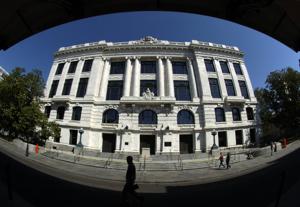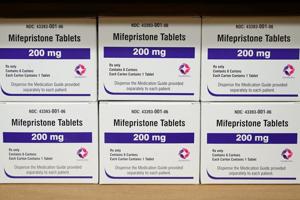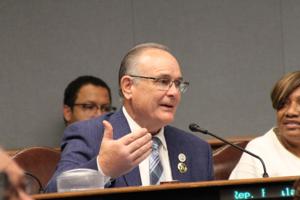The power of Louisiana judges to vacate a guilty verdict or prison sentence and fashion a different outcome at the request of a district attorney for any reason drew a spirited debate at the Louisiana Supreme Court on Tuesday.
The justices appeared split over Attorney General Jeff Landry’s challenge to a 2021 law that was backed by Louisiana’s district attorneys and granted broad discretion for judges to grant post-conviction plea deals reached by prosecutors and defendants.
The law endorsed a practice that district attorneys have employed for decades across Louisiana with the blessing of local judges, for reasons that vary.
But Assistant Attorney General Grant Willis argued that the Legislature went too far in Act 104, by usurping the governor’s sole authority to grant clemency under the state constitution.
“It is literally an act of grace by the judge,” Willis said. “There’s no legal decision a judge has to make. He can decide he wants to, he doesn’t want to, completely arbitrarily.”
Landry’s challenge came in the case of William Wayne Lee, who was convicted of murder in St. Tammany Parish but granted a reprieve last year by District Attorney Warren Montgomery.
Citing the new law, Montgomery agreed to reduce Lee’s conviction from murder to manslaughter, and his sentence from life to 35 years, over the death of Audra Bland in 2003 from a head injury. District Judge John Keller approved the deal after a January hearing, prompting Landry’s challenge.
“The fact (the law) shares a similar characteristic of clemency does not at all mean that it intrudes on the governor’s power,” argued Lee’s attorney, Nick Trenticosta. “It just shares a similar characteristic. But it is vastly different in all respects to the clemency process.”
Though a St. Tammany case is at issue, the impact may be felt most acutely in New Orleans, where District Attorney Jason Williams’ office has cited the law to grant relief to long-serving inmates in scores of cases.
Elsewhere, Trenticosta told the justices, prosecutors statewide have halted its use pending the high court’s decision.
Chief Justice John Weimer viewed the legal challenge less as an attack on prosecutors than one on the judiciary that he leads.
“In truth and in fact, what you’re impairing is the authority of the judiciary, right?” he asked.
Weimer argued that the practice enshrined in the new law isn’t akin to clemency. The governor’s pardon powers are virtually limitless, Weimer noted, while judges are restricted by the cases or disputes presented to them.
“The judge doesn’t wander through the jail handing out grace, does he? He’s got to wait for the case,” Weimer said.
But others on the court were more skeptical. Justice Will Crain noted that the same court last year refused to make a ban on non-unanimous jury verdicts retroactive. He suggested district attorneys could freely thumb their noses at that ruling.
“Under this statute, can a DA come in and exonerate all of these defendants that did not get retroactive application?” Crain asked.
One could, both sides agreed.
“The court found it is not retroactive,” Trenticosta said of the split-jury ban. “That does not take away a district attorney’s power to resolve a case that may need resolving.”
Paul Bonin, a former appeals and district court judge, sat in for Justice Jefferson Hughes, who heard Lee’s case years ago as an appellate court judge.
Bonin piggybacked off Crain’s argument, saying he found no basis in the new law for assessing the validity of a judge’s decision, and no chance to review it.
“That’s what makes the governor’s power of clemency so powerful is that it’s unreviewed. It is totally within his discretion,” Bonin said. “When you create something in the judicial branch that mimics it, it’s the exact same thing.”
But Justice Piper Griffin, a former Orleans Parish civil court judge, cast doubt on the limits of a prosecutor’s power in Louisiana without any review.
“What’s the difference between this and a DA’s decision to dismiss charges prior to any prosecution, prior to any trial, or simply to choose not to prosecute?” she asked. “That’s an office making a decision, and it’s done.”




Leave a Reply